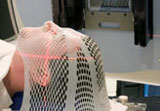Radiation Treatment for Brain Cancer
A cancer is a group of cells that divides abnormally, and continues to grow and spread throughout the body. They can appear in any part of the human body, such as the breast, the lungs and the brain; while some types of cancer are more common than others, radiation treatment can be used to treat almost any type of cancer. These abnormal cells can also affect the brain and once they have grown, they start damaging brain cells and the entire functioning of the body. However, there is radiation treatment for brain cancer that aims to stop these abnormal cells from growing and spreading before it’s too late.
How is Brain Cancer Treated?
Radiation treatment for brain cancer is a type of treatment that follows the technique that conventional external beam radiotherapy does. The main purpose of the treatment is to stop the growth of the cancerous cells by hitting them with a high radiation beam, which can also affect healthy cells if it’s not done properly. The beam used with radiation treatment for brain cancer can be the conventional x-rays (same as imaging scans) or it can be particles (ions and protons). Depending on the type of treatment that your oncologist chooses, the radiation might be directed only to your spinal cord or perhaps to your whole brain. If the brain cancer isn’t too far advanced, you might be asked to have the treatment done every day for several weeks; this is something that your oncologist or specialist has to decide with his team.
Radiation Treatment Side Effects & Complications
Just similar to any type of medical treatment of medication, radiation treatment for brain cancer brings the possibility for the patient to suffer from side effects. Most of the time, these don’t present themselves until after a couple of weeks of the first radiation session, and they might not be the same for every person. As it happens with chemotherapy, one of the most common side effects of radiation treatment for brain cancer is the loss of hair. This can be a tad difficult for some patients to assimilate but the good news is that it will grow back eventually.Another common side effect is the redness or itchiness of the skin, which can create a deal of discomfort at night. Additional complications associated with radiation treatment are fatigue and edema.
Radiation Treatment Follow-Up
Depending on the program that your oncologist designs for you, there is a possibility that you have surgery after you have received radiation treatment for brain cancer. This could also be the opposite way, where you first have the surgery and then you move on to receive the radiation treatment. After all treatment and surgery is finalized, there are a few follow-up measures that you will have to take, such as:
- Periodic Physical exams
- Periodic neurological exams
- Periodic MRIs
- CT scans
- MR spectroscopy
- PET scans
- Blood tests
By doing so, your oncologist will be capable of detecting any new change in your brain or spinal cord.

